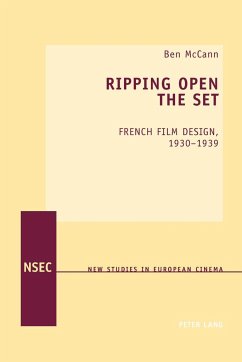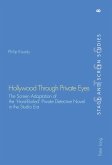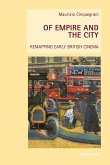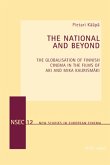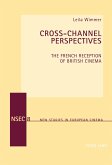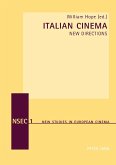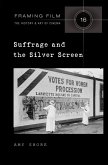French film design throughout the 1930s was not just descriptive, but also expressive: sets were not merely part of the background, but were vital components of a film's overall atmosphere, impact and critical afterlife. This was a period when sets were 'ripped open', as painted backdrops were replaced by three-dimensional constructions to ensure greater proximity to reality. Accomplished set designers such as Alexandre Trauner, Jacques Krauss and Eugène Lourié crafted a series of designs both realist and expressionistic that brought out the underlying themes of a film's narrative and helped create an exportable vision of 'Frenchness' that influenced other European and American film design practices.
This book details the elaborate paraphrasing tendencies of French film design in the 1930s. The author explores the crucial role of the set designer in the film's evolutionary process and charts how the rapid development of studio practices enabled designers to become progressively more ambitious. The book examines key films such as Quatorze juillet (1932), Un Carnet de bal (1937), La Grande illusion (1937) and Le Jour se lève (1939) to demonstrate how set design works at establishing time and place, generating audience familiarity and recognition and underpinning each film's visual style.
This book details the elaborate paraphrasing tendencies of French film design in the 1930s. The author explores the crucial role of the set designer in the film's evolutionary process and charts how the rapid development of studio practices enabled designers to become progressively more ambitious. The book examines key films such as Quatorze juillet (1932), Un Carnet de bal (1937), La Grande illusion (1937) and Le Jour se lève (1939) to demonstrate how set design works at establishing time and place, generating audience familiarity and recognition and underpinning each film's visual style.
«This is a superbly researched book that adds a welcome new perspective to scholarship on production design, film history, and the French studios of the 1930s.»
(Sue Harris, French Studies 70, 3 2016)
«McCann's characterisations and descriptions are vivid, clear, and evocative, and carry a pictorial weight. His study is valuable both for its specific considerations of films and designers, and for the broader questions it provokes about the role of production design in the film-making process.»
(Philippa Hawker, Australian Book Review 2/2014)
«Ben McCann has given us a fascinating and highly readable book that excels in its sharp close viewing style, its vibrant description of visual detail, and its focus on the specificity of set design and the contributions of particular designers to classic French cinema. After each chapter, readers will doubtless find themselves, as I did, wanting to return to these well-known films for a closer look.»
(Alison J. Murray Levine, H-France Review 14/2014)
(Sue Harris, French Studies 70, 3 2016)
«McCann's characterisations and descriptions are vivid, clear, and evocative, and carry a pictorial weight. His study is valuable both for its specific considerations of films and designers, and for the broader questions it provokes about the role of production design in the film-making process.»
(Philippa Hawker, Australian Book Review 2/2014)
«Ben McCann has given us a fascinating and highly readable book that excels in its sharp close viewing style, its vibrant description of visual detail, and its focus on the specificity of set design and the contributions of particular designers to classic French cinema. After each chapter, readers will doubtless find themselves, as I did, wanting to return to these well-known films for a closer look.»
(Alison J. Murray Levine, H-France Review 14/2014)

